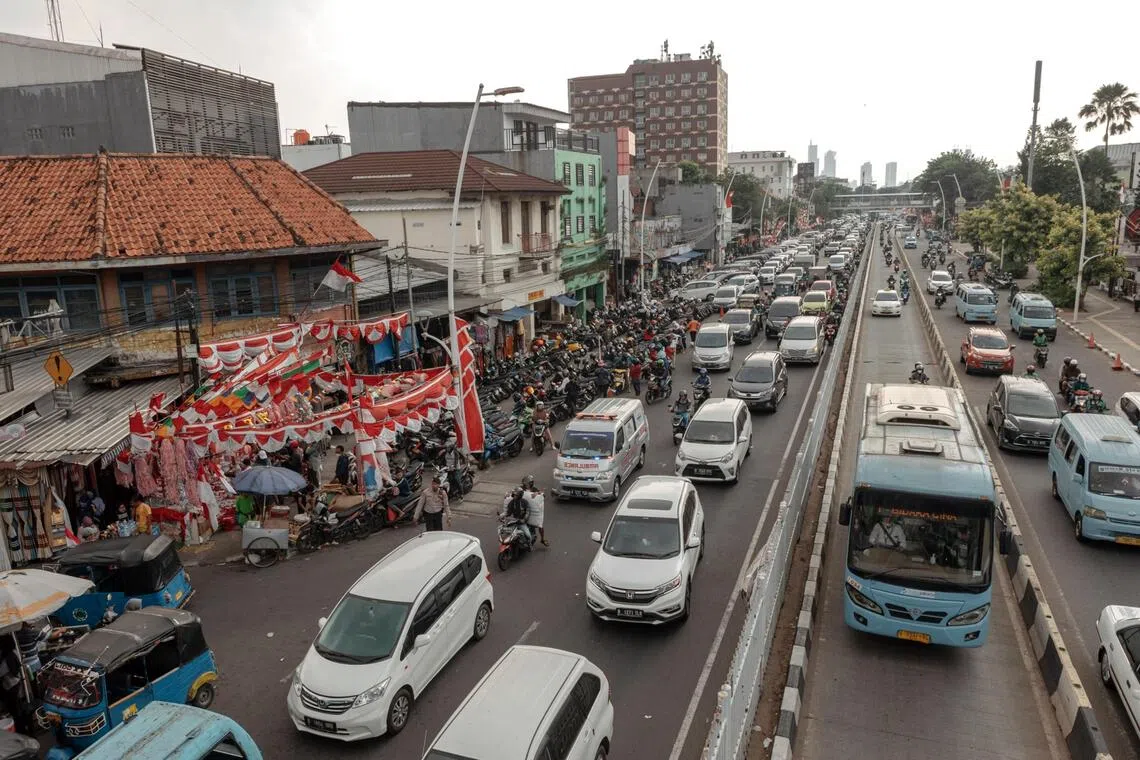Jakarta shoots to No. 1 in world population ranking from No. 33
Sign up now: Get insights on Asia's fast-moving developments

Jakarta’s dramatic growth over the past few decades has been driven by mass migration, new development, and infrastructure projects.
PHOTO: BLOOMBERG
John Yoon
Follow topic:
JAKARTA – Jakarta, Indonesia’s vibrant, overcrowded and sinking capital, has displaced Tokyo as the most populated city in the world, according to the United Nations, thanks to its new way of counting urban populations.
Jakarta is estimated to have 42 million inhabitants, roughly the population of Canada, according to the UN’s “World Urbanisation Prospects 2025” report, published Nov 18.
Tokyo, with 33 million, is now third. Dhaka, the capital of Bangladesh, is No. 2 with 37 million.
It is a drastic reordering from the last report, published in 2018, which had Jakarta as 33rd with 11 million people, and Tokyo first with 37 million.
The huge swing is due in large part to the report’s new methodology. Before, the UN’s population estimates were based mainly on official national statistics, which could use widely varying metrics.
This time, the report said, it used a consistent approach across countries to categorise cities, towns and rural areas.
For Jakarta, spread along the north-western coast of the island of Java, the new methodology counted about 30 million more people than the previous criteria would have. The official national statistics for the city’s metropolitan area excluded “densely populated communities” connected to the city centre, the report said.
Using the new criteria, researchers found that Tokyo had been the world’s most populous city until around 2010, when Jakarta took over. Tokyo, like the rest of Japan, has experienced a shrinking population in recent years.
Jakarta’s dramatic growth
The growth has led to sprawling, informal settlements in both the city center and the surrounding communities in which poor, working-class people have built dense villages and slums – often near skyscrapers, highlighting Jakarta’s gaping economic divides.
Millions of people in those informal settlements, called kampungs in Indonesian, often lack clean water, power and waste disposal systems and are usually not counted toward the country’s official statistics for the city, said Professor Waleed Alzamil, a professor of urban planning at King Saud University in Saudi Arabia.
The UN report said that its findings would help policymakers, planners and researchers improve housing, transportation, sanitation, health systems and other public services around the world, especially in growing cities. NYTIMES

